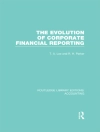Global finance is in the middle of a radical transformation fueled by innovative financial technologies. The coronavirus pandemic has accelerated the digitization of retail financial services in Europe. Institutional interest and digital asset markets are also growing blurring the boundaries between the token economy and traditional finance. Blockchain, AI, quantum computing and decentralised finance (De FI) are setting the stage for a global battle of business models and philosophies. The post-Brexit EU cannot afford to ignore the promise of digital finance. But the Union is struggling to keep pace with global innovation hubs, particularly when it comes to experimenting with new digital forms of capital raising. Calibrating the EU digital finance strategy is a balancing act that requires a deep understanding of the factors driving the transformation, be they legal, cultural, political or economic, as well as their many implications. The same Fin Tech inventions that use AI, machine learning and big data to facilitate access to credit may also establish invisible barriers that further social, racial and religious exclusion. The way digital finance actors source, use, and record information presents countless consumer protection concerns. The EU’s strategic response has been years in the making and, finally, in September 2020 the Commission released a Digital Finance Package. This special issue collects contributions from leading scholars who scrutinize the challenges digital finance presents for the EU internal market and financial market regulation from multiple public policy perspectives. Author contributions adopt a critical yet constructive and solutions-oriented approach. They aim to provide policy-relevant research and ideas shedding light on the complexities of the digital finance promise. They also offer solid proposals for reform of EU financial services law.
लेखक के बारे में
Heikki Marjosola, University of Helsinki; Emilios Avgouleas, University of Edinburgh.












